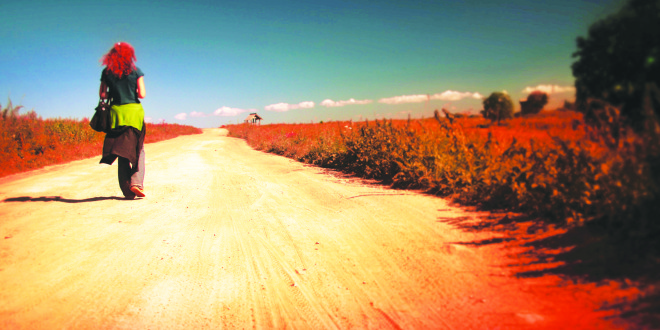“Ladies, travelling alone will be one of the best things you ever do, but make sure you do it right. Here are some tips for staying safe while exploring the world.”
Women travel for countless reasons, whether to discover new frontiers, pursue business opportunities, or simply to rest and relax—not unlike men. But when it comes to health and security, and how travellers are affected by the religious and cultural beliefs of the foreign countries they visit, there’s a huge difference between women and men. The truth is that women face greater obstacles, especially when travelling alone.
The problems they face are diverse. Petty and violent crime, culture shock, poor sanitation, the dangers and disappointments of international cyber-dating – the challenges are many. But so are the benefits. With careful planning, common sense, and respect for religious and societal differences, you can minimize your risks and maximize your chances of having a safe and successful trip.
-
KNOW THE RISKS
The more you know about where you’re going, the safer and happier your travels will be. Before you leave, be sure to complete a risk assessment of any country you’re thinking of visiting. It will help you to choose a destination where you’ll feel safe and in your comfort zone. If you doubt you can put up with the challenges and hazards of a particular country, strike it off your list. A risk assessment should address your concerns as a female traveller, including safety and security, health conditions, the political and economic environment, local laws, customs, and cultural norms – including the role of women – in your potential host country. For example, some countries employ strict interpretations of Sharia or Islamic law, which may have an impact on the rights and obligations of women. The fact that activities, such as wearing a bikini or having premarital sex, are legal in the West doesn’t mean they’ll be so in a foreign country. Based on your research, develop a risk-management strategy outlining hazards you should be aware of and precautions you can take.
Start by checking to see if there’s a Travel Warning in effect for your proposed destination and obtain information on safety and security, local laws and customs, health conditions, and entry requirements.
Supplement these resources with travel books, newsletters, magazines, and websites just for women travellers. They offer a comprehensive view of the health, safety, cultural, and emotional issues experienced by women on the road.
-
PLAN AHEAD
Careful preparation is your key to safe and successful travel. By planning ahead, you’ll avoid hassles later.
Obtain a valid passport and an appropriate visa for every country on your itinerary. Understand the terms of each visa, as you could be arrested for violating visa conditions in some countries.
As a precaution against loss or theft, leave copies of important travel documents with family or friends. If possible, scan all your documents and send them to yourself at an e-mail address you can access anywhere.
Make sure you have travel health insurance that covers all medical expenses for illness or injury (including hospitalization abroad and medical evacuation), loss or theft of valuables, damage to baggage, and flight cancellations or interruptions.
Consider taking a self-defence course for women. You’ll embark on your journey with added confidence.
Carry an emergency contact card with the coordinates of the nearest embassy of your country or consulate in your destination, in case you run into trouble abroad.
-
TRAVEL LIGHT
Always travel light, if possible, to protect yourself against loss or theft of money and valuables. You’ll be much less vulnerable and more independent if you’re not weighed down with a lot of luggage.
The ideal handbag or daypack is easy to carry and has zippered inner compartments for added security, a padlock on every pocket, and a sturdy shoulder strap or harnesses. The best way to carry your bag is in front of you, close to your body, where it’s out of reach of wandering hands. Carry only items that are lightweight and that you can afford to lose.
Try to have at least one hand free at all times. It may help to wear cargo pants or a vest with multiple pockets to store travel documents and gear. Be aware of your surroundings and keep an eye out for bag-snatchers and pickpockets.
Avoid displaying expensive-looking cameras, jewellery, and other showy accessories that may mark you as a wealthy tourist. Beware of credit card fraud. Never leave your credit card out of sight.
Conceal in a money belt or neck pouch any necessities that can’t be easily replaced and that are crucial to your travel arrangements: your passport, airline and train tickets, credit and debit cards, traveller’s cheques, cash, a copy of your insurance policy, medical prescriptions, and contact information for your doctor.
Keep copies of all important travel documents in your suitcase, in case the originals are stolen or lost.
Use a small-wheeled suitcase or backpack for long trips, a small day-pack or tote bag for shorter excursions. Keep your luggage locked at all times. Carry two sets of keys.
Use luggage tags that hide your contact information from the inquiring eyes of thieves and con artists.
Always pack your own luggage and never let it out of your sight while travelling. Watch out for individuals who may try to plant items in your pockets or in your luggage. Never carry anything, even an envelope, across a border or through customs for anyone else.
-
CRIME PROOF YOURSELF
Be careful who you trust. Watch out for criminals —both male and female—who target women travellers. They may work individually or in teams, often posing as good Samaritans or creating distractions to steal belongings. Be wary of new ‘friends’, including locals, fellow travellers.
Beware of the threat of getting trapped in sex or labour trafficking. Human traffickers frequently recruit foreign women through fraudulent ads for work as hostesses, models, nannies, maids, or other seemingly legitimate jobs.
Know where you’re going, what you’re doing, and how to get back. Always carry the address or a business card from your accommodations. Study a street map before going out. Avoid opening a map in a public area or keep it hidden under a newspaper. If you get lost, try to get your bearings and ask for directions from a police officer, shopkeeper, or another woman on the street, or by finding a phone and calling your hotel or hostel.
Use only legal and reputable taxis. Never hire a taxi if the driver approaches you in an airport arrival area. Such services are usually illegal and may be
unsafe. Ask your hotel to recommend taxi services and avoid the risk of hailing an unlicensed cab on the street. Or take advantage of women-only taxis in such cities as London, Cairo, and Moscow. Whenever possible, pair up with someone you trust when travelling by taxi.
Never hitchhike or accept rides from strangers. There’s no country on earth where hitchhiking is safe, particularly for women.
Leave important items in your hotel safe, avoid taking valuables to the beach or pool, and if you do, never leave them unattended while swimming. Carry only essentials, such as your cash and hotel key, in a compact waterproof container with a neck or wrist strap.
Stay alert and aware of your surroundings. Minimize alcohol consumption and don’t use, carry, or get involved with illegal drugs.
Don’t be afraid to make a scene. A loud whistle or even a healthy scream can be helpful tools to ward off an attacker, deter an intruder, or summon aid. Consider wearing a whistle as a necklace or carrying a personal security alarm that emits a shrill sound.
Travelling solo has its benefits. You get to set your own pace, have more direct contact with foreign cultures, and meet new friends more easily. But a lone female traveller may also face unwanted attention
or overwhelming obstacles in some parts of the world. If you travel alone, you may want to choose countries with a more relaxed attitude towards solo female travellers, where you’ll face fewer challenges. Otherwise, you may wish to team up with a travel companion —there’s safety in numbers.
 Juliet Thomas Christian Articles for Young Women
Juliet Thomas Christian Articles for Young Women


